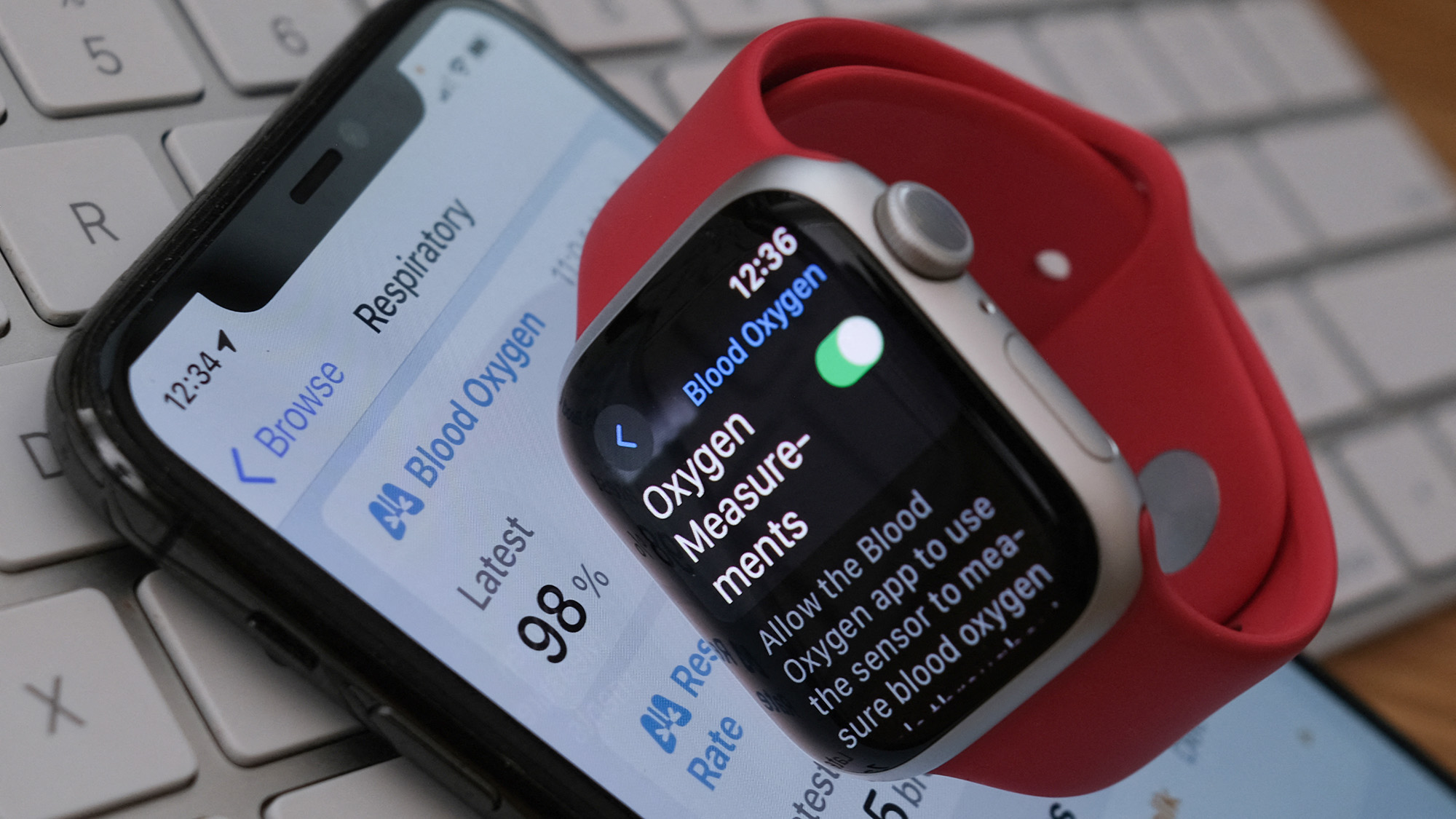

Apple may have found a way to avoid a US import ban on two of its popular Watch devices, but the solution would require the tech giant to ditch a highly-touted and legally contentious blood oxygen feature to do so. The proposed changes could help bring an end to Apple’s years-long legal dispute with medical technology firm Masimo, which claims Apple copied its patented “pulse oximeter” blood oxygen sensors and included it in its Series 9 and Ultra 2 devices. Apple could still avoid dropping the blood oxygen tech if a US Appeals court grants it a continued stay to keep selling the disputed devices while the company tries to reverse the ban.
The US Customs and Border Protection agency reportedly agreed a redesigned Apple Watch without the patented blood oxygen monitoring tech “falls outside of the scope” of the International Trade Commission’s (ITC) import and sales ban handed down last October, according to a January 15 court filing from Masimo. Apple reportedly said these reworked versions of the watch under consideration “definitively do not include pulse oximetry functionality.”
US Customs and Border Protection did not immediately respond to PopSci’s request for comment.
The news comes roughly three months after the ITC determined the two Apple Watch models violated Masimo’s patent protections. That ruling led to a shocking ban on the import and sales of those Apple devices in the US and weeks of dramatic legal pleas from Apple fervently fighting to stave off the ban, some reaching as high as the presidency. Apple managed to win an emergency interim stay which lets the company temporarily continue selling the disputed devices while the legal process played out.
Though it’s still unclear exactly how Apple intends to sell the devices without the blood oxygen feature, Bloomberg reports a fix may come shortly via a “software workaround.” That same report claims Apple’s operations team has already begun sending some of those updated Series 9 and Ultra 2 watches to Apple stores in the US. Workers at those locations, Bloomberg notes, were reportedly instructed not to sell the devices until they received approval from Apple’s corporate office. Those versions of the device could make their way to consumers’ wrists within weeks if Apple loses their appeal.
“Apple’s claim that its redesigned watch does not contain pulse oximetry is a positive step toward accountability,” Masimo said in a statement sent to PopSci. “It is especially important that one of the world’s largest and most powerful companies respects the intellectual property rights of smaller companies and complies with ITC orders when it is caught infringing.”
There are some important caveats to the reported deal. Apple is still eagerly waiting to see whether or not a US Court of Appeals will grant it a permanent stay while it tries to reverse the ITC ban. If that stay is granted, Apple could continue to sell its devices with the blood oxygen tech during the remainder of the appeals process, which could take years. In other words, Apple isn’t giving up its fight just yet.
Absent that continued stay, however, Apple would have to ditch the disputed feature in order to continue selling the Series 9 and Ultra 2 watches in the US. That outcome would represent a major win for Masimo and a setback for Apple, which touted the feature as a selling point for the devices. Apple did not immediately respond to PopSci’s request for comment.
ITC’s import ban sent Apple scrambling
Apple dramatically paused all in-store sales of its Series 9 and Ultra 2 watches on Christmas Eve last year, three days after it paused sales of the devices online. Masimo alleged Apple copied its blood oxygen sensor hardware following collaborations with the company that started back in 2013. The medical tech company alleges Apple stole the technology from that meeting and poached several of its key employees. Apple reportedly began selling watches with the pulse oximeter back in 2020, starting with the Series 6. Apple has repeatedly denied copying the tech from Masimo in previous court filings.
A US judge ultimately sided with Masimo late last year following a grueling, lengthy legal battle. Apple quickly appealed the patent infringement ruling only to have the ITC uphold the judge’s original ruling. Apple even tried to petition President Joe Biden to veto the ITC’s decision, but that plea went unanswered.
Apple pulled the devices from its shelves days before the ITC ban took effect on December 26. Not long after, a court agreed to place an emergency intern stay on the ban while the US Customs and Border Protection agency determined whether or not proposed changes to the devices would be enough to address the patent dispute. Now, it’s looking like Apple will get the opportunity to continue selling the two Watch models in question, albeit without the pulse oximeter.
